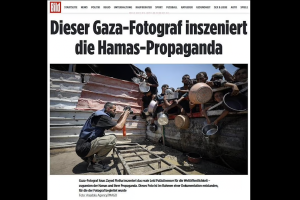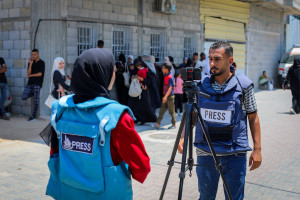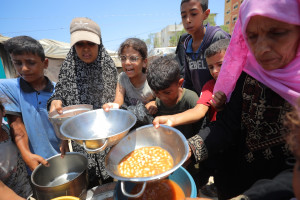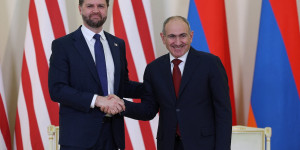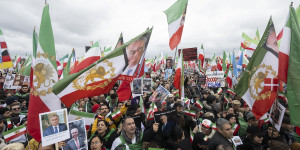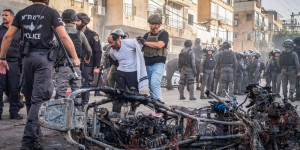The dangers of overplaying – and underplaying – starvation in Gaza
Two senior Israeli doctors warn against minimizing severity of Gaza crisis
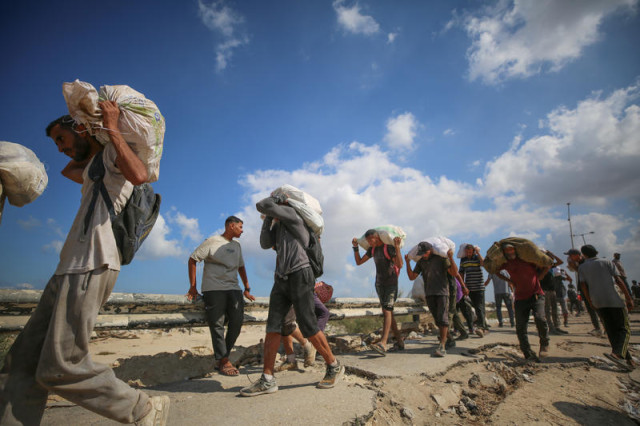
Skeletal frames have horrified millions around the world in this bitter conflict with Gaza. Images of the hostages appearing similar to WWII Holocaust victims and emaciated Gazans have filled our timelines and been central in news stories in recent weeks.
Yet, the images are not without controversy and cost. It has been pointed out, even admitted by the press that publish them, that the photos purportedly showing Gazans dying of hunger were, in actuality, extremely ill with other diseases.
After images of a toddler named Mohammed Zakaria al-Mutawaq looking like a bag of bones were plastered across most major media outlets as evidence of famine, it was discovered that he suffers from a muscular disorder.
The New York Times eventually issued a correction admitting that his illness revealed that he needed nutritional supplements and physiotherapy to maintain a healthy weight, and that he “was not representative of a normal Gazan child.”
Equally, the horrifying pictures of 27-year-old Abel Medi, who died of malnutrition, went viral, most often without clarifying that the young man had liver failure from hepatitis and that the body was essentially eating itself due to lack of available treatment.
The manipulation of media is nothing new, and an entire 𝕏 account has been dedicated to documenting the fabricated war imagery in a genre known as “Pallywood” or "Gazawood" here in Israel, and as “fake news” in Washington. The German news outlet BILD recently exposed some of the staging involved in carefully crafting the starvation narrative, even though the article did not deny that there is acute hunger in Gaza.
The trouble with the brandishing of these manipulated images is that it makes it all the more difficult to discern the truth. The result is that millions are misled into believing the lie that Israel is an evil, genocidal state, heartlessly starving Gazans to death on purpose.
On the other hand, and equally seriously, those who do see through the deception can become so cynical that they don’t believe anyone is without food except the hostages.
Hearts become hardened as the anti-Israel propaganda echoes the tale of the boy who cried wolf – eventually, any cries for mercy go unheeded altogether.
Two senior Israeli doctors have spoken out on the matter, telling the Times of Israel that even though reports of starvation have been exaggerated, Gazans suffering with severe illnesses – such as little al-Mutawaq – are, indeed, in a desperate situation, the severity of which should not be minimized. The ongoing humanitarian crisis prevents those who need it from accessing proper treatment and nutrition, with catastrophic results.
“You categorically do not find kids looking like that in Israel or Western countries,” said Prof. Dan Turner, head of a pediatric gastroenterology unit at a Jerusalem hospital and Deputy Dean of the School of Medicine at Hebrew University. “Even patients with background diseases should not be malnourished like that. A patient like that would be admitted to hospital,” he added.
Dr. Michal Feldon, a senior pediatric doctor and department head at another hospital in Israel, also explained, “I have seen children with severe diseases for the last 20 years, and I don’t see children like that, and if I do, it’s due to poor adherence to therapy and neglect.”
Following the 10-week blockade on aid from March 2 until May 18 imposed by Israel – preventing food, medicine and critical humanitarian supplies from entering the Gaza Strip – there was a sharp rise in cases of acute malnutrition.
The UN’s Office for the Coordination of Humanitarian Affairs (OCHA) reported that while 6% of 56,440 children evaluated throughout Gaza showed acute malnutrition in June, the number had risen to 8.8% at the beginning of July – representing a 2.4% increase since February.
The measure was intended to pressure the Hamas terrorist organization – which had been stealing and reselling humanitarian aid – in hopes of weakening its grip on power and disrupting its supply lines. However, the blockade backfired and inevitably affected ordinary Gazans as well.
Prof. Turner expressed his sorrow over the changes he sees happening in Israeli society throughout the war.
“We have had a good compass over 4,000 years for what is right and wrong… We are not the same people anymore; we are declining as a nation. Our values have kept us together in the most difficult periods of history, and we are losing these values, and this is the biggest threat to the Jewish people,” he told the Times of Israel.
Emphasizing these values underpinning Israeli society which come from the Bible, he said, “We need to behave properly not because they [the Palestinians] deserve it but because we have values, we are human, we have values we maintained for thousands of years which is the main reason why we need to remember who we are, and who we are not, and I think we have got confused about this over the last two years.”
He warned against continuing to build lives while ignoring the ruin of others, saying, “There is no blessing in it.”
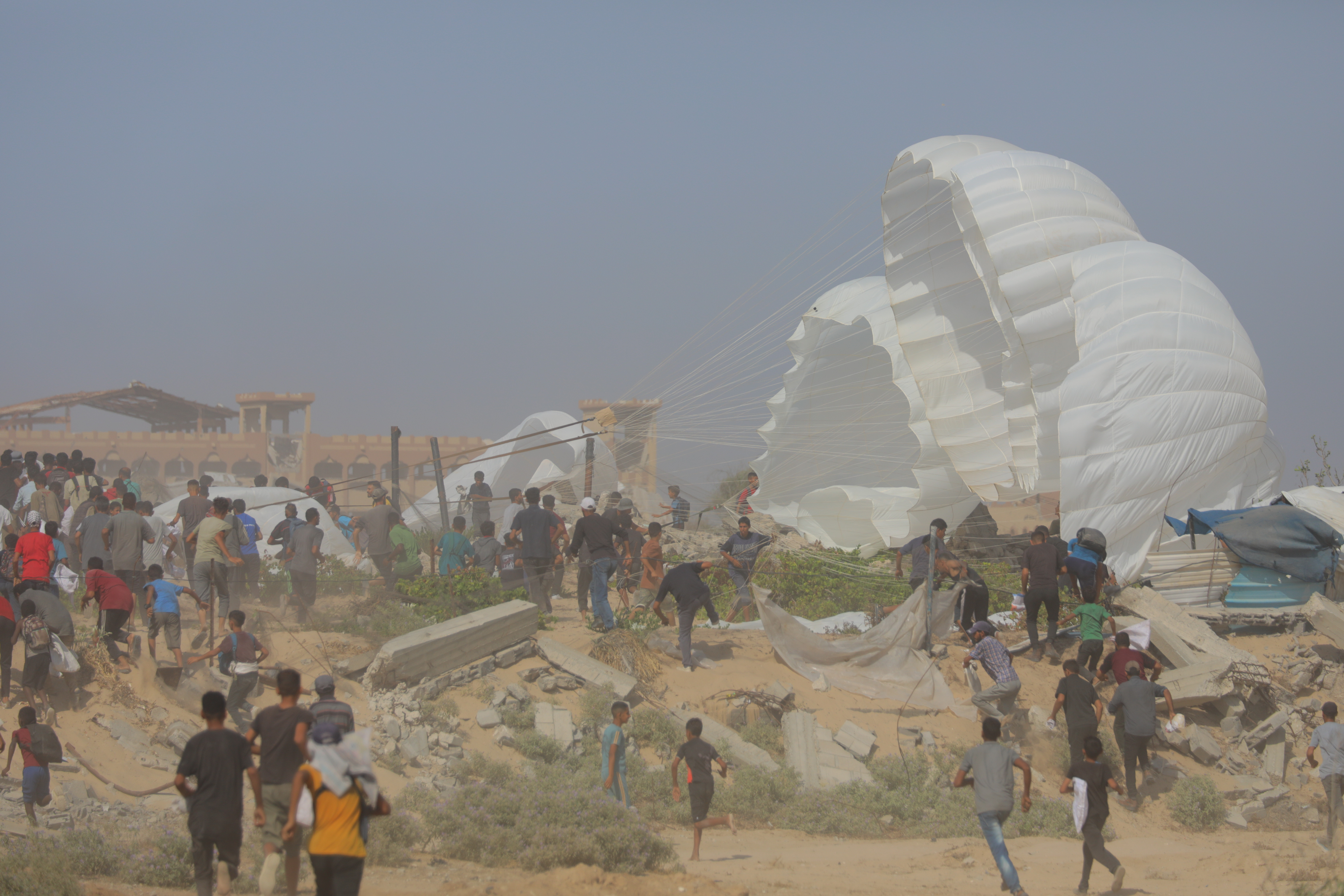
Is All Israel News’ faithful reporting important to you? Be part of it—help us continue by becoming a $5/month supporting partner.

Jo Elizabeth has a great interest in politics and cultural developments, studying Social Policy for her first degree and gaining a Masters in Jewish Philosophy from Haifa University, but she loves to write about the Bible and its primary subject, the God of Israel. As a writer, Jo spends her time between the UK and Jerusalem, Israel.
You might also like to read this:


